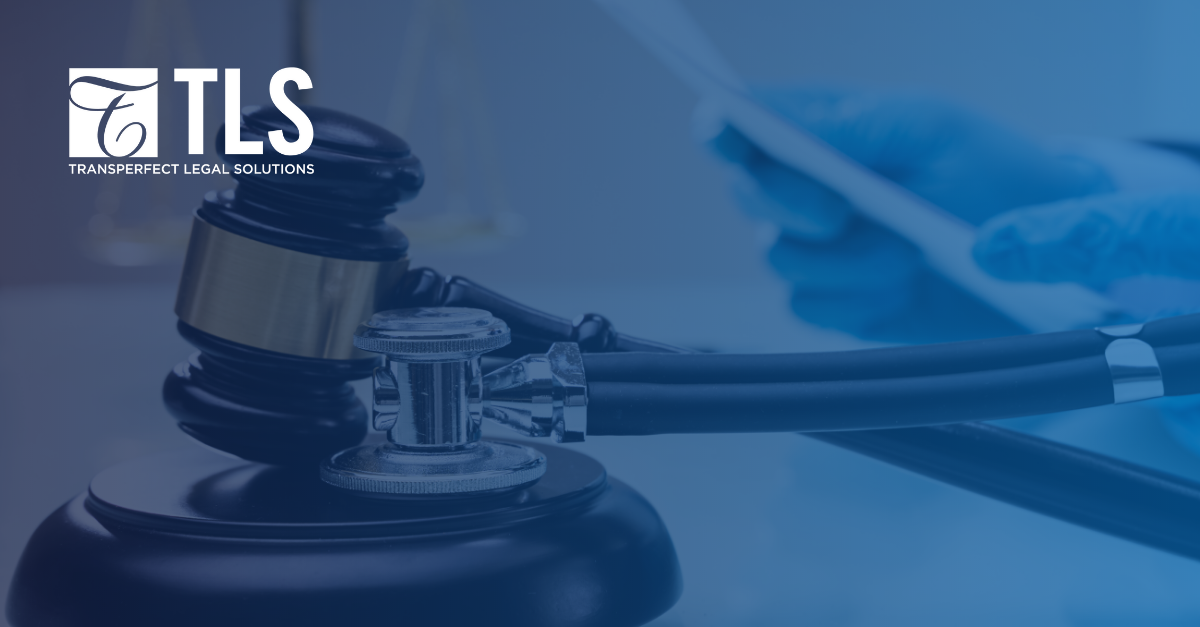What’s Trending: Milestone Disputes in Life Sciences Litigation
What’s Trending: Milestone Disputes in Life Sciences Litigation


Earlier this month, the ACC hosted an illuminating panel presentation on Life Sciences Litigation: A Look at Milestone Disputes & Recent Trends. Panelists included Lauri Mims and Jennifer Huber, both Partners at Keker Van Nest & Peters, and Ann Byers, Director, Shareholder Advisory at SRS Acquiom.
TransPerfect Legal Solutions (TLS) Regional Director Eric Elting attended the panel discussion and came away with some valuable insights.
Earn-out payments have been pervasive in biotech M&A transactions for many years. Given the timelines, costs, and risk in biotech research and development, biobucks* have played an important role in bridging the gap in valuation expectations between buyer and seller.
Disputes over milestone clauses are common. In Airborne Health, Inc. v. Squid Soap, LP (Del. Ch. 2009), it was determined that an earn-out “typically reflects disagreement over the value of the business that it bridges when the seller trades the certainty of less cash at closing for the prospect of more cash over time…But since value is frequently debatable and the cause of underperformance equally so, an earn-out often converts today’s disagreement over price into tomorrow’s litigation.”
Disputes are more common when milestones are based on narrowly defined, technical scientific standards and not based on ultimate results such as regulatory approval. Life sciences transactions tend to be long and complex, and development and regulatory plans may not play out as originally envisioned. Contractual diligence provisions may call for the buyer to pursue the original plan, setting up a potential dispute with sellers if the buyer wishes to change the plan for any reason.
Some possible trends related to these types of disputes include:
- Milestone disputes arise in many different contexts including merger agreements, product acquisitions, collaboration, and licensing agreements
- Despite the fact-intensive nature of these cases, some milestone dispute claims have been dismissed at the pleading stage
- While many cases settle, trials are still occurring
- Most life sciences milestone cases are in Delaware Chancery Court
- Arbitration is also common
- COVID-19-based disputes mostly surround supply-chain disruptions
During the development process, parties should understand that their internal decision-making will be scrutinized, and that subsequent safety or efficacy concerns may not absolve their obligation to make a milestone payment. Contract-drafters should avoid ambiguity wherever possible. You can’t assume everyone has the same understanding of an undefined phrase—beware of definitions that introduce more ambiguity.
Certain types of regulatory-related definitions that might cause confusion include:
- Marketing approval (e.g., “drug indication”)
- Types of clinical trials (e.g., Phase 2a/b or Phase 3, Registrational)
- Industry-specific terms of art (e.g., “study report”)
A court will not excuse a party from a milestone payment it agreed to make, even if the buyer ceases development of the drug or product. Additionally, courts will carefully analyze the factual circumstances for why certain milestones were not achieved to ascertain the real reason for the delay or failure.
In Lunar Representative LLC v. AMAG Pharmaceuticals, C.A. (Del. Ch. 2020), denying a motion to dismiss a claim that the acquiror slowed sales processing to reduce projected net sales from $410 million to $393 million in order to avoid paying a $50 million milestone based on +$400 million in sales, it was found that “slowing down sales to avoid making a contingent payment is the polar opposite of using commercially reasonable efforts to market and sell a product. If it occurred it would constitute a breach.”
Further, in Pacira BioSciences, Inc. v. Fortis Advisors LLC, C.A. (2021), the court granted a motion to dismiss claims that the agreement imposed a duty on former employees of an acquired company who allegedly inflated device reimbursement numbers to claim entitlement to milestone payments.
To avoid a lengthy or costly dispute, the recommendation is to hire a professional shareholder representative to manage litigation or negotiations. It is also important to know up front whose consent will be needed if contract terms need to be renegotiated and what forum will be best for resolution.
TLS has been working with life sciences companies, their legal departments, and law firms for the last 30 years. Whether you are looking at supporting a merger, taking your R&D to the IP market, or defending a bet-the-company litigation, TLS is your trusted partner.
*Biobucks is a term used in business transactions between large pharmaceutical and smaller biotechnology companies to describe the total possible value of the transaction, excluding royalty payments.